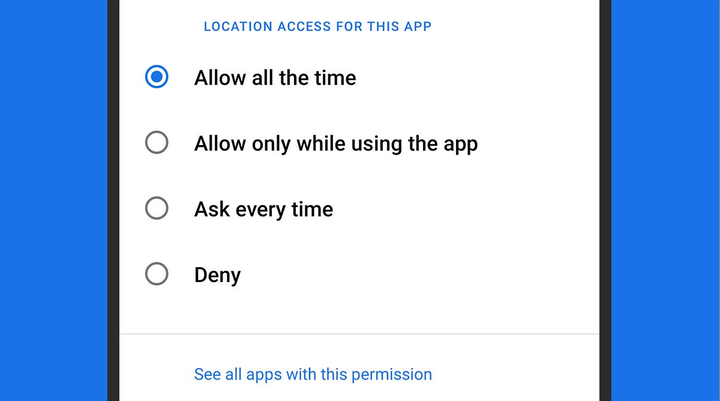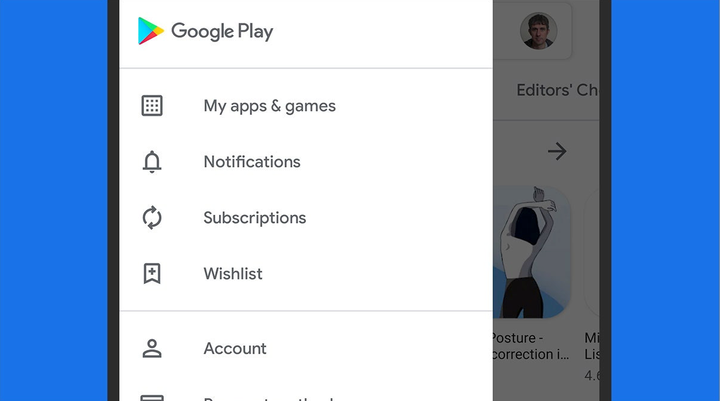Many Google mobile OS updates are under the hood, but they can help you control app permissions and keep your data safe.
You are in luck if you are in the first group of Android 11 recipients and it is already installed and working on your phone, otherwise you will be able to install it on your phone soon.
As with most major Android updates, security and privacy features have received a lot of attention, and there are now more integrated tools and options to protect you and your smartphone from snoopers and hackers looking to steal your data. Let’s take a closer look at these features.
One-time Permits
You’re probably familiar with the process of granting app permissions to parts of your phone like the microphone and camera, but Android 11 has a new setting to be aware of: One-Time Permission, which means the app can use your camera (microphone or location), but he will have to request permissions again the next time he needs access.
It’s perfect for apps you don’t fully trust or don’t use very often – it’s less suitable for apps you always use (allowing Instagram to access your camera every time you want to take a picture would not be very convenient).
Permissions will be reset for apps you don’t use. Image: DAVID NIELD
A new option appears in key permissions – camera, microphone, location – when apps need them, so choose wisely. There’s another new and related feature in Android 11 that’s less obvious: if you don’t use an app for a few months, all of its previous permissions will be reset and it’ll need to request them again.
Limited storage
Not very interesting from an end user perspective, but important for Android 11’s hidden security, limited storage means apps have access to their own data stores and don’t always access other apps’ stores, which in theory should keep your sensitive information more secure.
This is a somewhat controversial change: Apps might need to get data from other apps or services for a variety of reasons, such as an image editing app might need to access your photo gallery, for example. Limited storage doesn’t make this impossible, but developers have to overcome more hurdles and abide by Android rules to make it happen.
Your device will automatically become more secure because apps will have more restrictive limits. If you see apps sending permission requests for storage folders on your device, just double check what they are asking for before deciding whether to allow or block.
Background location access
Android 11 has another permission-related feature worth mentioning and that is background location access – apps can track your location in the background. When an app first asks for permission to track location, the option to turn it on permanently (even if the app is not running) is not available: to do this, you need to visit a specific page of the app in Android settings.
In theory, the extra steps should make us all think twice about granting background location access to an app, rather than just automatically clicking to grant permission out of habit.
Secure storage of credentials
Android 11 introduces dedicated tools to securely manage the identities on your phone – think e-IDs or driver’s licenses, for example – your phone has already become a de facto "ID badge".
None of this is fully functional right now, but there are such tools inside Android 11 in case developers want to use them, and Google encourages them to do so. It may not be available for some time in some regions and on some Android 11 devices, but this is only temporary.
One important aspect of the new feature is that your credentials will be stored offline, so they won’t be shared online and will be very difficult to download from your phone if they fall into the wrong hands. Stay tuned for more information about this feature in future Android updates.
Biometrics and Encryption
Two minor security updates for Android 11 that are worth mentioning are dedicated to biometrics and encryption. Biometric support in Android 11 – fingerprint and face unlock – has been extended to a wider range of devices, Google says, with more authorization levels (so face unlock, which uses less than reliable facial recognition technology, cannot be used to commit mobile payments, for example).
When it comes to encryption, Android devices are already encrypted by default, so without your PIN, it’s almost impossible to download data on your phone. But in Android 11, encryption is applied right after the update, even before you sign in again. This is a small change, but it closes another loophole that could be used to access your personal information.
More updates on Google Play Store
Android 11 builds on an existing initiative called Project Mainline, which essentially pushes key security updates through the Play Store – meaning you don’t have to wait for Samsung, Sony or whatever the phone company is to release a new version of Android to make your phone safe.
Additional security updates will come through the Google Play Store. Image: DAVID NIELD
Android core updates will still be released once a year as usual with new features and options, but Project Mainline means Google can respond faster to Android security threats and provide a fix for any phone with access to the Play Store as quickly. as much as possible.
This article is a manual translation of material from Wired magazine.


